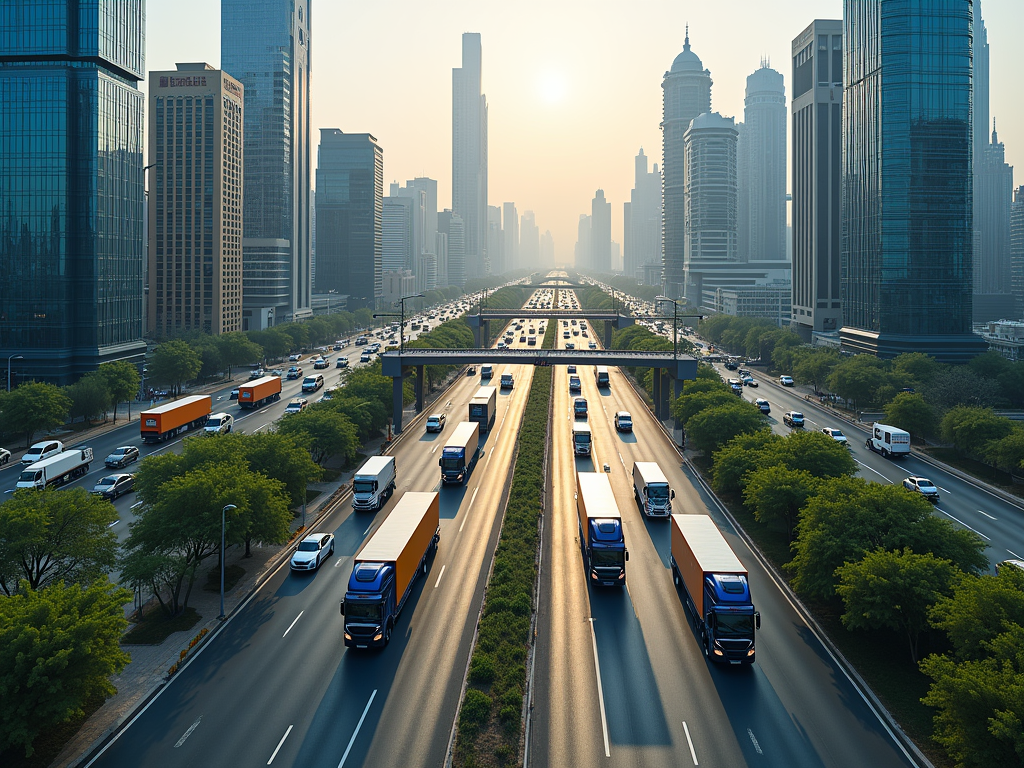Dubai’s transport infrastructure is rapidly evolving to keep pace with its ambitious business landscape, significantly driving economic growth and international trade. With state-of-the-art airports, expansive road networks, and a modern metro system, the city is strategically positioned as a global business hub. Businesses in Dubai benefit from improved logistics, efficient commuting for professionals, and seamless connectivity that fosters collaboration and innovation. This article explores the key components of Dubai’s transport infrastructure and their roles in supporting business development.
Modern Airports: Gateway to Global Markets

Dubai International Airport (DXB) is one of the world’s busiest airports, serving millions of passengers and freight annually. Its strategic location provides airlines with extensive connectivity to international markets, making it an essential hub for global commerce. The airport’s modern facilities, coupled with the expansion of the Dubai World Central (DWC), cater to growing air transport demands, enabling businesses to reach their customers swiftly and efficiently. Moreover, the seamless integration of customs services at the airport facilitates rapid clearance of goods, allowing companies to reduce delivery times significantly. With the attraction of many international airlines establishing operations in Dubai, businesses can tap into a vast array of global supply chains.
Efficient Road Networks: Connecting Industries

The road infrastructure in Dubai is meticulously designed to ensure smooth transportation of goods and services. Major highways such as Sheikh Zayed Road and Al Ain Road facilitate efficient travel for logistics vehicles, reducing traffic congestion and hastening delivery processes. This extensive network supports not only local businesses but also multinational corporations that rely on timely distribution. The city’s commitment to road safety and maintenance further enhances operational efficiency for businesses. Here’s a brief overview of how Dubai’s road networks support businesses:
- Reduction in Delivery Times: Uninterrupted road connections enable businesses to meet tight deadlines.
- Cost-Effective Logistics: Reliable roads minimize transportation costs and allow for better planning.
- Business Accessibility: Easy access to areas of commerce promotes customer traffic and sales growth.
- Infrastructure Development: Ongoing road enhancements ensure future needs are met.
Dubai Metro: Revolutionizing Urban Mobility
The Dubai Metro has transformed public transportation within the city, providing a fast and efficient commuting solution for professionals. This modern transportation system connects key commercial areas, enabling easier access for employees and clients alike. The metro’s user-friendly interface, affordability, and air-conditioned cars make it a favored choice for daily commutes. Additionally, it reduces traffic congestion on roads, allowing for quicker transit of goods by minimizing delays caused by traffic. Frequent expansions of the metro lines ensure that even burgeoning business districts remain well-connected, fostering economic growth throughout the region.
Seaports: Facilitating Global Trade
Dubai’s seaports, notably Jebel Ali Port, are among the largest and most advanced in the Middle East, further underpinning the city’s status as a global trade center. The port accommodates a significant volume of cargo and is designed to handle increasingly large container ships. Businesses benefit from efficient port operations, which allow for quick turnaround times and lower shipping costs. The strategic location of these ports makes it an ideal gateway for trade between Europe, Africa, and Asia. Here’s how the seaports cater to businesses:
- Robust warehousing solutions speed up distribution.
- Comprehensive customs services facilitate quick clearance.
- Direct shipping routes reduce shipping times significantly.
- Enhanced security measures ensure safe transport of goods.
Conclusion
Dubai’s growing transport infrastructure is a critical driver of business success, offering unparalleled connectivity and efficiency. From its world-class airports and road networks to a state-of-the-art metro and bustling seaports, the city is expertly tailored to support the demands of modern commerce. As businesses continue to thrive in this dynamic environment, the ongoing development of infrastructure ensures that Dubai remains an attractive destination for global investment and trade, further solidifying its reputation as a premier business hub.
Frequently Asked Questions
1. What are the key components of Dubai’s transport infrastructure?
Dubai’s transport infrastructure includes modern airports like DXB, expansive road networks, the Dubai Metro, and advanced seaports such as Jebel Ali Port.
2. How does the airport support businesses in Dubai?
Dubai International Airport offers extensive connectivity to global markets, rapid customs clearance, and facilitates both passenger and freight transport, ensuring businesses can operate effectively on an international scale.
3. What role does the Dubai Metro play in business operations?
The Dubai Metro provides efficient urban mobility, connecting key commercial areas, which helps employees and clients commute easily, thus enhancing productivity.
4. Why is Jebel Ali Port significant for businesses?
Jebel Ali Port is significant for businesses due to its capacity to handle large volumes of cargo with quick turnaround times and comprehensive customs services, making global trade easier.
5. What are the benefits of Dubai’s road networks for logistics?
Dubai’s road networks reduce delivery times, cut logistics costs, enhance business accessibility, and are continuously improved to meet future demands.